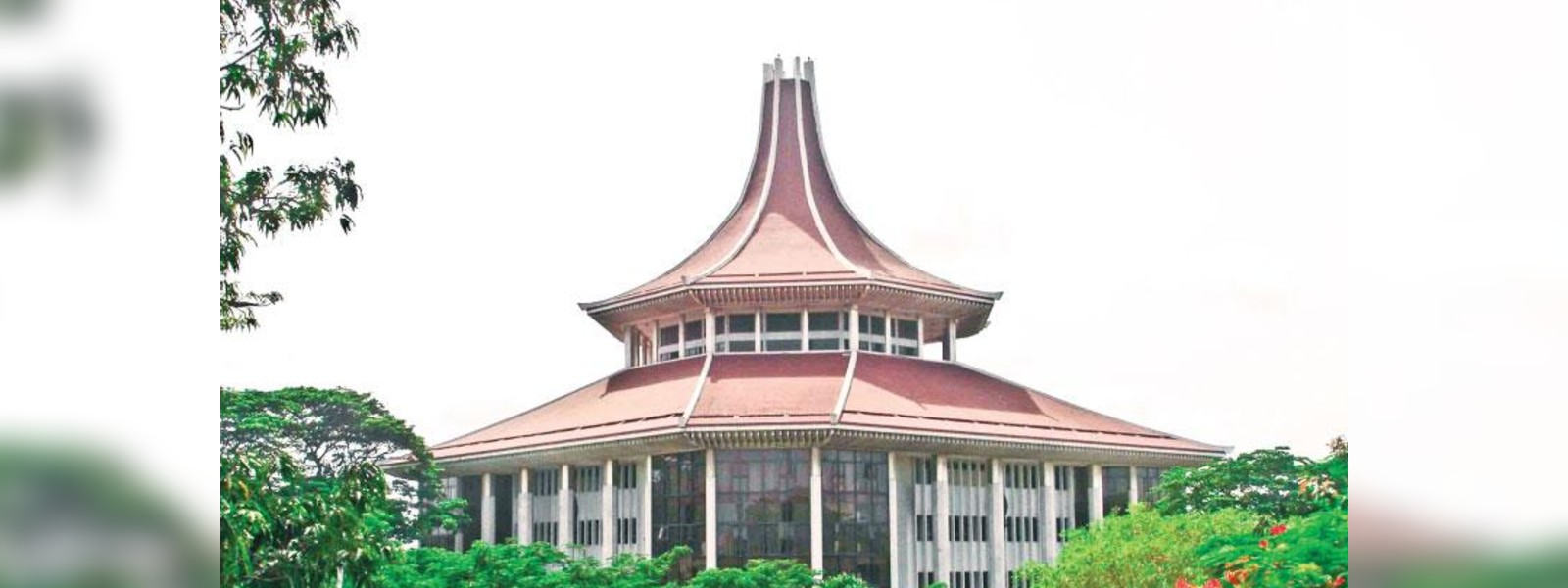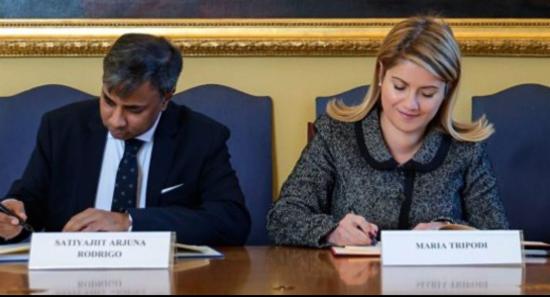.webp)

Supreme Court to announce decision on election-related FR petitions tomorrow
The decision on granting leave to proceed for the fundamental rights applications filed at the Supreme Court with regard to the election will be delivered at 3 p.m tomorrow.
The cases were taken up for consideration for the 10th day today.
While Counsel representing the petitioners submitted their responses, President's Counsel Saliya Peris representing the elections commission was also allowed to reply to allegations levelled against the elections commission.
President's Counsel M.A. Sumanthiran today (1st June) replied to the preliminary objections raised by the respondents on the grounds of locus standing, non-joinder of essential parties and time bars.
He submitted that the answers to many of the issues raised in the current matter before the court can be found in the 2018 judgment by a 7 judge bench of the Supreme Court, in the parliament dissolution case.
He submitted that although counsel representing the respondents and intervening petitioners submitted that holding early elections is an enhancement of the sovereignty and franchise of the people, the Supreme Court held in the 2018 decision that the elections must also be duly held according to the law.
Sumanthiran PC submitted that Articles 70 (5) (a), (b) and (c) of the constitution all include the three-month time limit within which parliament should be convened from the date of dissolution.
He cited the 2018 parliament dissolution case and submitted that the three-month time limit was held to be a mandatory constitutional provision by the Supreme Court, and pointed out that this period will lapse from midnight tomorrow (2nd June).
He inquired from the court as to if a decision of a 7 judge bench of the supreme court on the matter is not persuasive enough to grant leave to proceed, then what is?
Sumanthiran PC submitted that the proclamation issued by the President dissolving parliament is void under the grounds of illegality, irrationality and procedural impropriety.
He submitted to the court that the dates mentioned in the proclamation have become unworkable, and as such, the proclamation has no force in law.
According to his submissions, the initial proclamation included 3 effective dates,
1. The date of dissolution of parliament,
2. The date of the election
3. The date for the new parliament to convene
He submitted that currently only one of the dates mentioned in the proclamation remain relevant, while both other dates remain uncertain.
On the issue of reconvening the dissolved parliament under Article 70(7) of the constitution, he submitted that although the president has the discretion to decide on the matter he does not enjoy an unlimited discretion that is not reviewable before a court of law.
Counsel representing the other petitioners subscribed to his submissions.
Afterwards, President's Counsel Saliya Peris replied to allegations levelled against the elections commission.
He submitted that the letter sent by the elections commission to the President's Secretary P.B. Jayasundara did not demand the 5000 rupee allowance payment to be stopped.
Quoting the letter he pointed out to the court that the Elections Commission had merely informed the Secretary that there were certain complaints on the politicization of the program and requested the secretary to remedy this.
He also submitted documents to court on the steps taken by the elections commission to consult health authorities and other steps taken with regard to the elections process.
The documents were submitted in reply to allegations made that the elections commission were colluding with the petitioners.
Other Articles
Featured News





.png )

-819368_550x300.jpg)

-819356_550x300.png)








-812087_550x300.jpg)
-810262_550x300.jpg)
-809496_550x300.jpg)
















.gif)